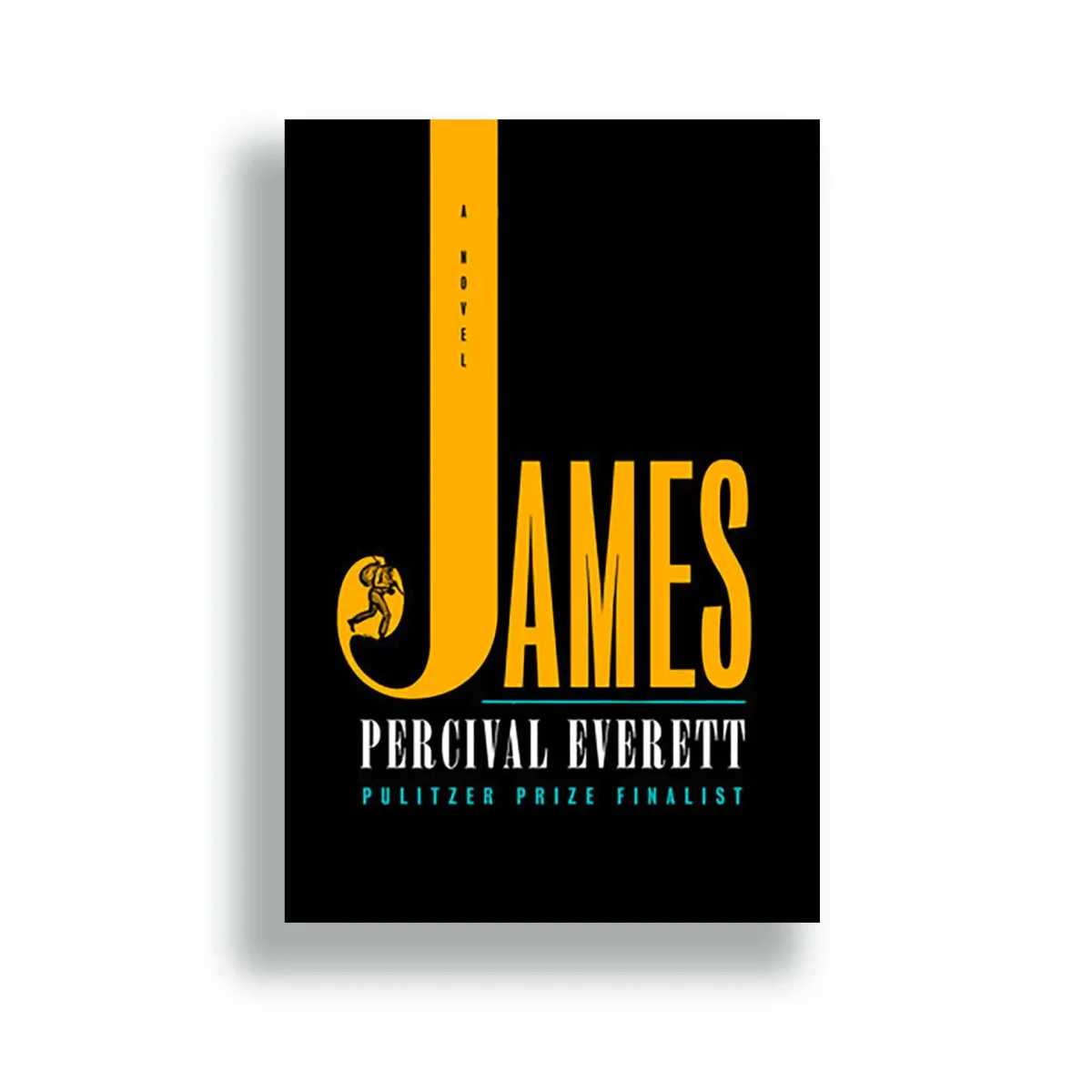Literary afterlives are rarely this unruly. And in these three contemporary novels, we aren’t reading corrections of classic literature but daring reinventions — “James” reclaiming his own mind, “Julia” bending dystopia to her will, “Demon Copperhead” narrating his way out of ruin. Each one proves that great stories don’t stand still. They evolve, argue and, in the right hands, startle us awake.
“James”
Percival Everett’s highly-lauded “James” doesn’t rewrite “Adventures of Huckleberry Finn” so much as it jailbreaks it, torching the bars of Mark Twain’s canonized narrative and slipping through the cracks with a smirk. Here, Jim — no, James — isn’t Huck’s footnote or moral barometer but a man of staggering intellect, saddled with the terrible necessity of hiding it.
Everett, with his signature wit and scalpel-sharp insight, reconstructs the enslaved runaway not as a symbol but as a mind in motion: a reader of Locke and Rousseau, a strategist, a survivor who performs subservience with the precision of an actor whose life depends on it — because it does.
The brilliance of “James” lies in its refusal to be an easy correction of Twain. This is not a novel that scolds; it seduces. Everett writes with a blade concealed in silk, every sentence a duel between humor and horror, wit and wrath. The language glows, the sentences coil, and beneath them runs an undercurrent of quiet fury: a world in which survival is an argument, and James — unshackled, unfettered — wins it. If “Huckleberry Finn” gave us an unreliable narrator, “James” offers something more thrilling: an unreliable history, finally made whole.
“Julia”
We have always read “1984” through Winston’s weary eyes, his rebellion slow-cooked in paranoia, his doom written in invisible ink from the start. But in Sandra Newman’s “Julia,” the telescreen pivots, and suddenly, the grim machinery of Airstrip One is humming at a different frequency — faster, sharper, edged with lipstick and laughter in the dark.
Julia is no tragic dissident; she is a survivalist, a woman who understands that in Oceania, the only true crime is losing the game. Where Winston intellectualizes his subversion, Julia metabolizes it, bending totalitarianism to her will with an irreverence that is almost — dangerously — fun. Newman paints her heroine not in grayscale, but in bold, unsanctioned color: she flirts, she plots, she revels in the bodily act of resistance.
Dystopian fiction often asks who we become when power grinds us down. Newman poses a sharper question: Who thrives? “Julia” is not just a feminist retelling but a feat of narrative archaeology, uncovering what Orwell buried — the possibility that pleasure, too, can be an act of defiance.
“Demon Copperhead”
Barbara Kingsolver’s “Demon Copperhead” is a novel with red dirt under its nails. It is, ostensibly, a modern Appalachian “David Copperfield” — but let’s not insult Kingsolver with mere homage. This book doesn’t borrow; it repossesses, gutting Dickens’ Victorian moralism and nailing up something meaner, funnier and unmistakably American in its place.
Demon, born Damon Fields but branded by his flaming hair and unlucky bloodline, narrates his own undoing in a voice that crackles — equal parts wisecrack and wound. His childhood is a parade of foster homes, factory-town ruin, and an opioid epidemic that hangs over the novel like an unpaid bill. Kingsolver writes addiction not as a bad decision but as a gravitational force, pulling whole generations down into the holler.
But this is not a dirge. Kingsolver’s sentences swing like a hammer, bending despair into defiance. Demon is a survivor, not a saint, and his voice — funny, furious, stubborn as kudzu — never asks for pity. “Demon Copperhead” is not just a novel. It’s a scalpel, peeling back the American Dream to reveal the rot beneath, then daring us to call it anything but the truth.

